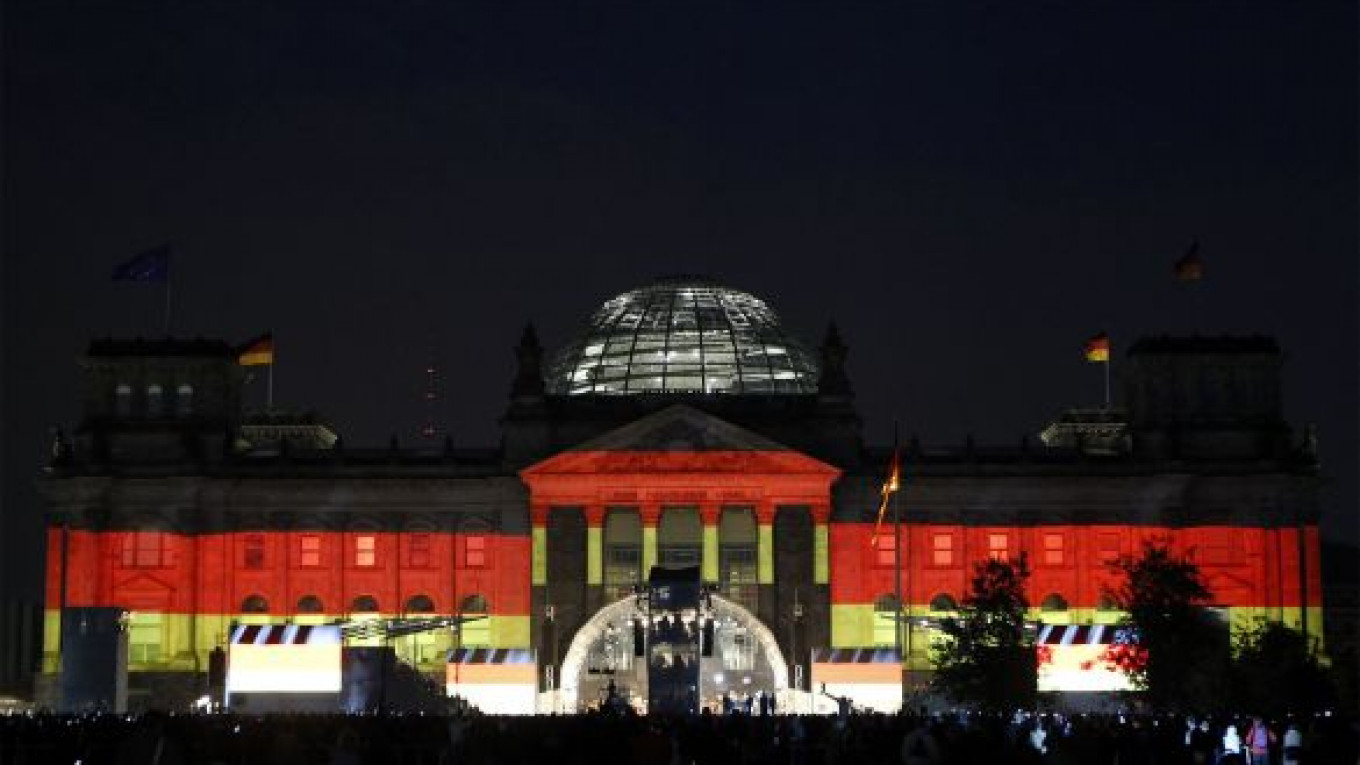BERLIN — Germany marked 20 years since reunification with pomp and ceremonies Sunday — and a final payment for outstanding interest due on loans dating back to the end of World War I.
The last installment was top be paid Oct. 3, as the country makes good on a 1953 international agreement, Germany's Office for Central Services and Unresolved Property Issues said.
Germany issued several series of bonds in the 1920s and '30s to help pay for World War I reparations demanded by the victorious Allies and to bolster its economy. When the Nazis came to power in 1933, they suspended all payments.
Following World War II, Germany worked together with the United States, Britain and other European nations to hammer out an international agreement known as the 1953 London Treaty that stipulated how Germany should repay its outstanding debts, including the old bonds.
The treaty dictated that holders of bonds were to bring them in to be reissued so that they could be reimbursed. It also allowed for payment on the outstanding interest accrued from the end of the war in 1945 to the year the treaty was formalized in 1953 — roughly 150 million euros ($200 million) — to be suspended until Germany reunified and then paid in installments over 20 years.
"The sum is actually not so large that it couldn't have been paid off directly following reunification," said Axel Hermann of the Office for Central Services and Unresolved Property Issues. "But Germany stuck to the London Treaty."
The London Treaty also set up the validation process for the outstanding bonds, most of which were reissued by 1958. Anyone in possession of an old bond can still have it reissued through a complicated process, including proving that they or their relatives held the bond already in 1944 — a step to ensure that stolen or forged papers are not recognized. The Soviet Army purportedly plundered thousands of bonds in 1945 from a Nazi vault as the war ended.
"Under German law it is still possible to trade in the old bonds," Hermann said.
A half-dozen people in the United States are seeking to force Germany to repay old unvalidated bonds in their possession. Germany insists any outstanding bonds must be validated in keeping with the international accord.
The bonds were sold in the United States, Britain and elsewhere, from 1924 to 1930 to help Germany invest in new projects and industries and pay war reparations. One series, known as the Dawes Bonds, raised $110 million in 1920s dollars — the equivalent of about $1.2 billion today; another series called the Young Bonds generated more than $98 million — about a billion today.
A Message from The Moscow Times:
Dear readers,
We are facing unprecedented challenges. Russia's Prosecutor General's Office has designated The Moscow Times as an "undesirable" organization, criminalizing our work and putting our staff at risk of prosecution. This follows our earlier unjust labeling as a "foreign agent."
These actions are direct attempts to silence independent journalism in Russia. The authorities claim our work "discredits the decisions of the Russian leadership." We see things differently: we strive to provide accurate, unbiased reporting on Russia.
We, the journalists of The Moscow Times, refuse to be silenced. But to continue our work, we need your help.
Your support, no matter how small, makes a world of difference. If you can, please support us monthly starting from just $2. It's quick to set up, and every contribution makes a significant impact.
By supporting The Moscow Times, you're defending open, independent journalism in the face of repression. Thank you for standing with us.
Remind me later.






